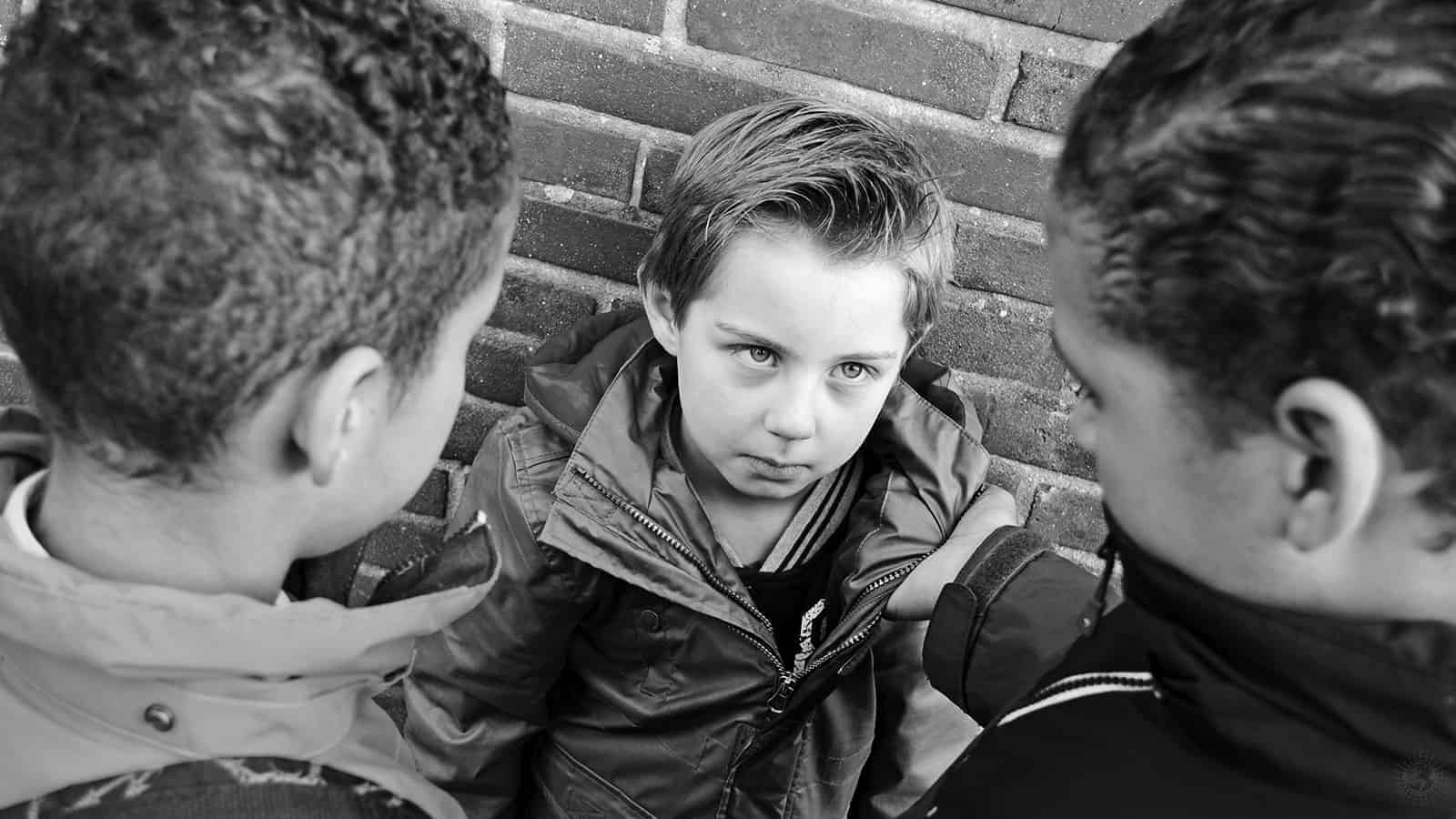No parent wants to think about their child being bullied, but it’s an unfortunate reality for kids everywhere. A bully has nothing to do with their worth as a person or your skills as a parent. Bad people exist, and you just have to cope with them when they cross your path.
The first step is identifying all of the signs and symptoms of a bullied child. You’ll need to know the facts before you can move forward with actions.
If you suspect that your child is dealing with a bully, here are some of the biggest warning signs.
10 Warning Signs of a Bully That Every Parent Needs to Know
1. Sudden Changes to Their Routine
This should be a red flag for parents who are concerned about bullies. If your child wants to make sudden, unexplained changes to long-standing routines, you need to ask why.
Why don’t they want to ride the bus anymore? And why are they taking the “long way” around parks, playgrounds and other areas where children congregate? Why do they want to quit a dance class that they’ve always loved?
These things aren’t automatic signs that your child is struggling with a bully. For example, they might have decided that riding the bus is just uncool.
If you notice other signs of bullying, however, this one is usually spotted in conjunction with them. Kids often try to deal with the problem on their own rather than getting the adults involved. It might be because of embarrassment or shame, or it might come from a fear of retaliation from the bully. Either way, they’ll try to avoid and minimize the situation instead of talking about it.
2. Ignoring Texts and Phone Calls
Cyberbullying is on the rise. In fact, it might even be more of a problem than “traditional” bullying. While 25 percent of children report being bullied in a general sense, that number climbs to 43 percent when online harassment is included.
Cyberbullying can take many forms, including:
– Hurtful messages on social media
– Targeted attacks through texts, calls, apps, blogs, and forums
– Photoshopped images or messages
– Hacked accounts being used to impersonate the victim
– Private photos being spread to others
– Spamming or dog-piling the victim with constant abuse
Cyberbullying is a serious and insidious problem, and solving it is a lot more complicated than just “turn the computer off.” If you suspect that your child is being cyberbullied, you’ll have some work to do.
3. Tears and Tantrums
Children aren’t able to regulate their emotions like adults. When they’re upset about something, they might run the full spectrum of fear, sadness, anger, anxiety, shame, and depression.
Parents should be on the alert for children who have sudden and dramatic mood swings. They should also be prepared for emotions and reactions that don’t make sense in a particular context. This is called emotional transference, and it’s why a child might cry like the world is ending just because they dropped their food on the floor.
The food isn’t the real issue. It’s just the straw that breaks the camel’s back. It’s emotional trauma, and it needs to be recognized and addressed.
4. A decline in Academic Performance
This one is tricky because it can have many causes. For example, an undiagnosed learning disorder can affect your child’s grades just as much as a bad teacher or a poor classroom environment. It isn’t always the result of bullying.
As with the other things on this list, however, a decline in academic performance can be a red flag if you’re seeing other symptoms of bullying as well. Their tormentor might be stealing their homework, ruining their textbooks or distracting them in class. They might be stalking them in the halls and preventing them from going places like the library or the computer lab. They might just be making your child’s life so miserable that they can’t concentrate on anything.
Talk to your kids if their report card isn’t up to par. You should be doing that anyway, but it’s especially important if you suspect that bullying might be the reason for it.
5. Physical Symptoms of Pain and Fear
Bruises, of course, are one of the biggest signs that you’re dealing with a bully. But not every child comes home with a black eye. There are other, smarter ways that bullies torment their victims while leaving less evidence:
– Scratches
– Torn clothing
– Impact marks from books, shoes, rulers or athletic balls
– Missing items that have been stolen or damaged
– Bruises from falling or being shoved
Some bullies don’t leave marks at all, but your child will still have a physical response to the psychological trauma. They’ll struggle with things like headaches, stomachaches, nausea, and insomnia because of their fear and anxiety over the bullying. Don’t ignore these warning signs.
6. Violent Behavior
It isn’t uncommon for the aggressive behavior of a bully to start rubbing off on the victim. When they’re exposed to this kind of sustained, repeated violence, they start normalizing it. They start seeing it as an acceptable way to solve problems. The same thing happens with child abuse victims.
Is your child having sudden problems with aggression? Are they being too rough with their siblings, or are they lashing out at you when you try to make them do chores or mind their manners? Are they using bad language?
They learned this behavior somewhere. It might be from a movie or a bad influence in their friend group, but it might also be from a bully. Watch out for it.
7. Changes to Their Eating Habits
There are two ways that bullying can affect your child’s appetite:
– They might not want to eat. This could be the result of either real injuries or faked illnesses to try and avoid school. Some children might even try to make themselves sick by not eating or drinking.
– They might develop a sudden and ferocious appetite. This could be the result of bullies ruining their food, stealing their lunch money or making them avoid public places like the cafeteria or restroom. Your child might not want to risk it, so they starve themselves until they get home and binge.
Changes in someone’s appetite are almost always a cause for concern. If your kid is experiencing it, figure out why.
8. Isolation
Does your child seem lonely? Are they spending more and more time at home instead of hanging out with friends? Have they dropped teams, clubs, and activities that they used to enjoy?
Isolation can be both self-imposed and group-imposed. Your child might be hiding in their room because they don’t want to deal with the bullies lurking outside, or they might be the subject of shunning or ostracizing by others.
Groupthink is very prevalent in schools. Bullying victims often bear the brunt of it. Their own friends might start to avoid them to escape the social stigma.
If your child is spending more time curled under the covers than running around outside, talk to them about it. See if you can gently poke around the issue and figure out why they aren’t engaging with peers and playmates. There’s always a reason, so parents should make it a priority to find it.
9. Self-Esteem Issues
This is another symptom that can be hard to diagnose, especially in teenagers. Puberty is a bully in its own right. How do you know when your child is calling themselves ugly because of a classmate’s words or a period’s hormones?
One way to tell is if their complaints are very specific. If they repeatedly criticize the same thing about their body, they might be getting teased about it.
Another sign is if their self-confidence problems are coming hot on the heels of other bullying symptoms. If they’re suddenly putting themselves down while coming home with bruises and quitting all of their clubs, parents should be able to put two and two together.
Talk to your child about having good self-esteem. Teach them body positivity and other mental health wellness strategies. The lessons that you give them now can impact their way of thinking for years to come.
 10. Spending More Time With You
10. Spending More Time With You
Most parents are thrilled at the thought of their kids wanting to hang out with them. But are the kids doing it for the right reasons?
Do they genuinely love movie nights, or do they just lack any other options for things to do on the weekend? Are they using family time as a crutch or an excuse to avoid social situations with their peers? Do they get disproportionately upset when you suggest that they spend time with other kids instead of you?
All parents want to have a good, healthy relationship with their children, but it shouldn’t come at the expense of having good and healthy relationships with other kids their own age. If something is out of balance, you’ll want to figure out why.
 Final Thoughts on the Role of Parents in Recognizing a Bully
Final Thoughts on the Role of Parents in Recognizing a Bully
Bullying is a complex problem that can take a lot of effort to recognize and stop. If your child is suffering, however, ignoring the problem just isn’t an option. Use this checklist as a parent’s first line of defense against a bully and start brainstorming an action plan from there.












 Community
Community

